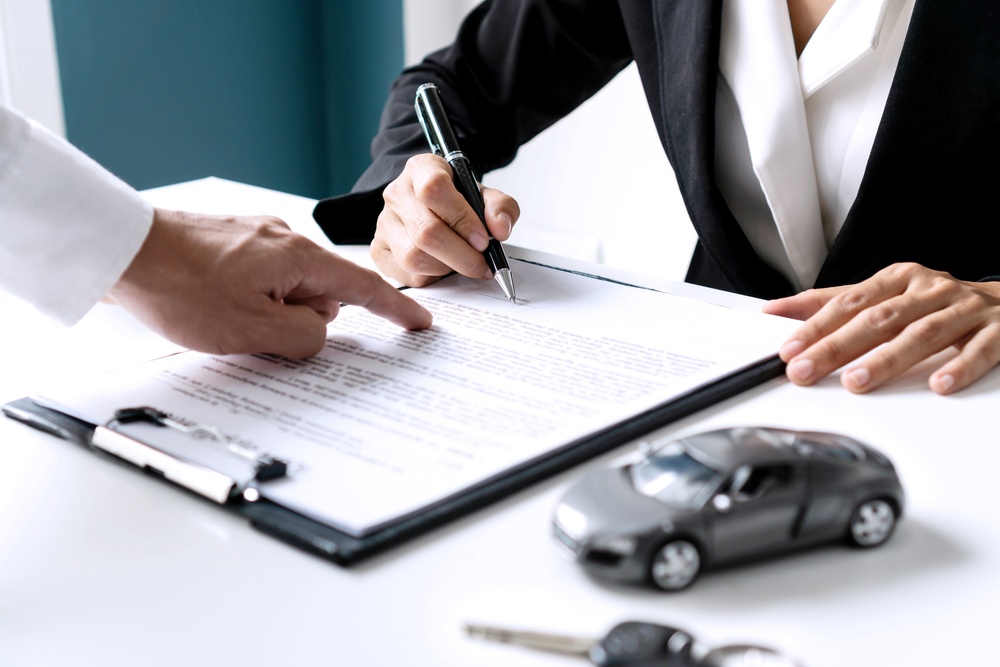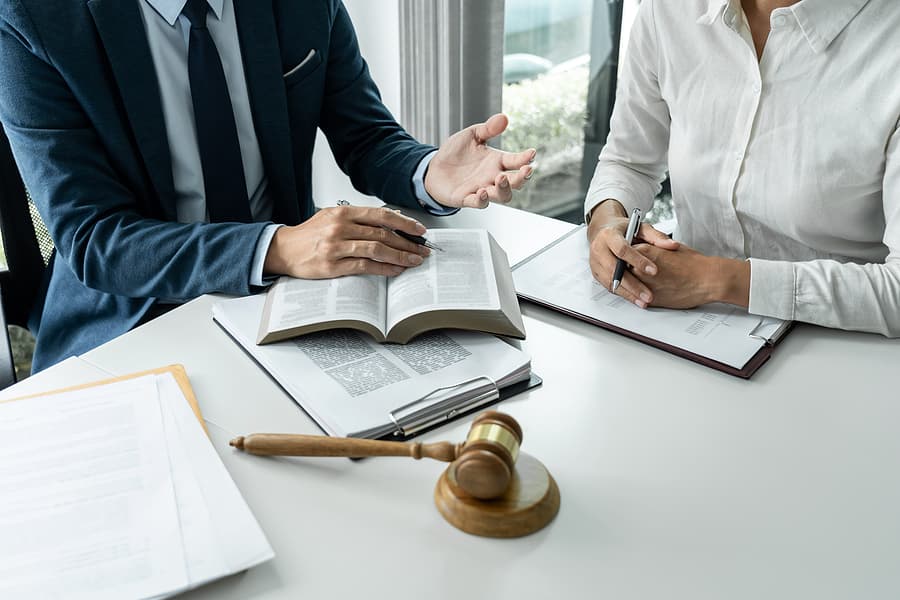Immediately following an accident, it can be hard to know what to do next. If you are seriously injured, your sole focus may be dealing with your medical care needs and the other challenges that come your way. However, it is important to also consider the vital steps that can help protect your right to compensation after an accident injury. You can contact a car accident lawyer who can help you.
Track Your Medical Costs
Medical bills do not take long to rise dramatically after an accident. Many people find themselves facing significant medical needs: emergency medical procedures, ongoing medical care, therapy, and durable medical equipment needed to help them make a full recovery, for example.
Many people find it difficult to keep their ongoing medical bills organized as they come in, because they may receive multiple medical bills from the different providers they see throughout their recovery. They will also likely receive multiple medical bills from the same general procedure: for example, a bill from the hospital and a bill from a doctor who saw you during your stay.
Keep a clear record of all medical costs associated with your accident. You may want to start a file for all your medical bills, or you may want to create a spreadsheet detailing all the costs you have to deal with.
You should also document details like:
- Any insurance coverage you may have had for medical bills related to your accident, including PIP insurance or health insurance coverage that covers the cost of some of your medical needs.
- Medical bills you may have already paid versus those you still need to handle. Not only can this help you keep up with what bills you still have outstanding, but it can also prove useful when you talk to an attorney about your accident.
- Any future medical procedures you will need. Often, accident-related injuries will result in the need for extensive medical procedures in the future. Talk to your doctor about those likely expenses and how to plan for them.
Keeping clear documentation of your medical costs can prove essential, not only for ensuring that you have your finances in order after an accident but also for presenting a clear account of your expenses when filing an injury claim.
Follow All of Your Care Provider’s Instructions
When you have serious injuries after an accident, whether you suffered broken bones or a brain injury, you will often have a care team focused on helping you maximize your odds of a full recovery. Your doctor may have several things you need to keep up with to increase your odds of making that essential recovery.
Procedures You Need
You have the right to make vital decisions about your care. However, you should not ignore the recommendations of your medical care providers. Putting off needed medical care may mean that your condition will worsen or you may lose the opportunity to recover as fully as you would have with proper treatment.
For example, if your care provider recommends surgery but you choose not to have it or to wait a long time to schedule it, it could cause life-threatening or limiting complications.
Listen to your care provider’s recommendations about your overall care, including specific procedures you need. Try to schedule your care on time so you do not miss out on needed support as you recover.
Therapy
Frequently, your doctor will recommend therapy to help you cope with your injuries. Physical therapy helps rebuild your strength and mobility after a serious accident and can prove critical to your overall recovery. You may limit your recovery if you do not participate in physical therapy, including performing any exercises your therapist recommends while at home.
If you limit your recovery by failing to go to physical therapy, the insurance company paying the bills may refuse to accept liability for any challenges you might have to deal with because of that refusal.
If you suffered life-altering injuries, your doctor might recommend that you attend occupational therapy sessions. An occupational therapist can help you relearn how to perform many of the tasks you took for granted before the accident. For example, an occupational therapist might provide information about coping with a missing limb or how to use a wheelchair effectively.
An occupational therapist can also offer patients with traumatic brain injuries coping strategies to help them navigate memory loss or focus difficulties. Failing to attend occupational therapy sessions can substantially increase your suffering after the accident. If the insurance company learns that you did not attend those sessions, it may limit the compensation it will offer for your pain and suffering.
Activities to Avoid
Depending on your injuries, your doctor may recommend that you do not engage in certain activities to avoid worsening those injuries. For example, if you have a broken bone in your leg that requires surgery, your doctor may recommend that you avoid bearing weight on the injured limb for six to eight weeks after the surgery.
When you have a brain injury, your doctor may recommend avoiding any activity that could cause further head trauma, including participating in sports, going for bike rides, or engaging in reckless activities.
If you engage in activities your doctor recommended you avoid and it causes your injuries to worsen, it could limit the compensation you can recover from the insurance company. The insurance company will not accept liability for any further limitations caused after your accident, even if they relate to your initial accident.
Start a Journal
After your accident, you may want to start a journal that lays out the details of your recovery and the challenges you may face along the way. Often, accident victims find it difficult to describe all the suffering they have faced once they have recovered from their injuries. You may not remember how long periods of depression lasted when pain started to resolve or even when your doctor recommended that you begin a new therapy or treatment.
Your journal can serve as essential evidence when you file an injury claim. A journal can help lay out the direct suffering you faced because of the accident: the limitations you had to live with, the non-financial losses you faced, and even activities or events you had to miss out on.
It may also help you look back on specific dates related to your recovery. While your medical records will document the dates of medical procedures, appointments, and therapy sessions, they may not document more significant milestones, like when you could finally get out of the house again after the accident or when you realized that you might never have the capacity to engage in certain activities again. Your journal, on the other hand, can help you remember those important dates.
Have a Lawyer Handle Your Claim
After an accident, you may receive a call from the insurance company that covers the liable party. Sometimes, that call will come within a few days, especially in cases where the at-fault party may have reported the accident to the insurance company and admitted liability. However, that initial call does not necessarily mean that the insurance company will provide the support you need as you recover.
Ideally, you should get in touch with a lawyer as soon after your accident as possible before you start trying to navigate your claim. You should have your attorney deal with the insurance company on your behalf rather than dealing with the insurance company yourself.
A Lawyer Can Help You Avoid the Insurance Company’s Traps and Snarls

The insurance company may use certain tactics designed to get you to accept a low settlement offer: one that does not necessarily reflect the real damages you sustained because of the accident or the compensation you deserve. First, the insurance company may pressure you to accept partial liability for the incident, claiming that you did something wrong. Even excusing the at-fault party’s actions can work against you, especially in disputed liability cases.
Next, the insurance company may pressure you to accept a low settlement offer. The insurance adjuster may, for example, try to convince you that you do not have the right to any additional compensation or that the insurance company has offered you the maximum offer it will have to provide. Accepting that offer could prevent you from getting the full compensation you really need for those injuries.
A Lawyer Can Locate Evidence Related to Your Accident
Collecting evidence after an accident can be complicated. The longer you wait to collect that evidence, the more difficult it can be to obtain. When you contact a lawyer soon after your accident, your lawyer can begin collecting evidence on your behalf. That, in turn, can make it easier to prove your right to compensation and move forward with your injury claim.
A Lawyer Can Reduce Your Stress and Deal With the Insurance Company for You
Dealing with the insurance company after you are injured in an accident can be incredibly stressful. During a time when you have medical costs piling up and you do not have your usual income because you cannot work, you may find that the insurance company pressures you to settle quickly so you can get some money now – even if it means ignoring the compensation you really deserve or even accepting partial liability for an accident that you know you did not cause. Working with a lawyer can help substantially reduce your stress regarding these matters.
Your lawyer can provide essential information about how much compensation you deserve and how you can best navigate the claim process, which can help improve your outcome and leave you less frustrated.
Plan for Patience
It can take longer than you expect to settle an accident injury claim. Personal injury claims often take months to reach a settlement or court agreement and can take more than a year. If you assume you will have funds in your hands within a matter of days or a couple of weeks, you may grow increasingly frustrated. Meanwhile, your lawyer can:
Notify Your Care Providers
If you need to wait to pay your medical bills until you have received compensation for your injuries, notify your care providers. In many cases, your care providers will work with you to ensure that you continue to get the care you need while you recover, even though you cannot currently pay for those bills. If not, your attorney can issue a letter of protection indicating your intent to pay, which can help stave off collections actions on medical bills.
Collect Evidence
Keep track of all evidence related to your claim. While you should let your attorney do things like talking to witnesses and taking their statements, you may want to gather some of the evidence related to your claim on your own. For example, you may want to get your hands on a copy of the accident report and review it for accuracy.
You should present your attorney with copies of your medical bills and records or any information you have received about the accident. You should also keep copies of any communication you have with the liable party or the insurance company during the claim process or your recovery. By keeping up with that evidence now, you can reduce the time needed to collect it in the future.An injury claim can be very complicated.
However, a lawyer on your side can make getting the compensation you deserve much easier. Contact the personal injury lawyers at Gruel Mills as soon after your accident as possible to receive legal support for your injury claim.



